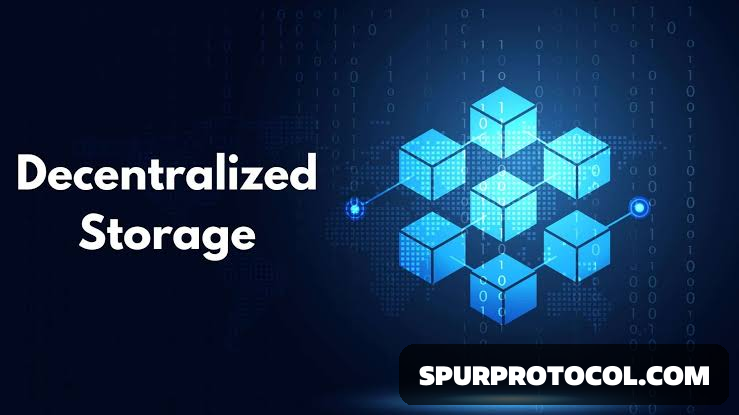What Is Decentralized Storage?
Unlike traditional centralized storage servers operated by a single entity or organization, decentralized storage systems keep data files across geographically distributed nodes connected via peer-to-peer(P2p) networking.
Go Back

🕒 7:10 PM
📅 Apr 08, 2025
✍️ By Ecojames
Decentralized storage
Decentralized systems store data across a geographically dispersed network of computers rather than in a single location.
This makes storing large amounts of data possible without relying on a central server or provider, helping to eliminate potential censorship and privacy intrusion issues.
How Does Decentralized Storage Work?
-Decentralized storage involves storing data across multiple computers or nodes connected to a P2P network like BitTorrent or an InterPlanetary File System (IPFS) protocol.
-Data uploaded onto a decentralized storage system is split into small pieces and sent to multiple nodes across the network for storage. If you need to retrieve your data file, the network will piece together the sharded components from the individual nodes storing it and reassemble them for you to download.
-Nodes in a decentralized storage system can't view or alter files because a cryptographic hash mechanism automatically encrypts all the data stored on a network. Users must use their private keys to access their data and prevent unauthorized entities from retrieving the information.
The Advantages of Decentralized Storage
Decentralized data storage can alleviate some of the issues faced by traditional centralized storage servers. Here are a few of the benefits decentralized storage networks have.
1.Improved security and privacy
Decentralized storage systems offer more robust security because their data is spread across multiple nodes rather than residing on a single server.
This makes it harder for hackers to break into decentralized storage networks and extract information.
2.No single point of failure
A decentralized storage network consists of multiple connected nodes, providing greater redundancy and fault tolerance so users can still access data from other nodes on the network even if one node goes down.
3.Faster download speeds
Decentralized storage can potentially reduce bandwidth usage because the nodes storing the data files are spread out globally.
4.Lower cost
With many nodes hosting data, more storage is available on a decentralized system. This usually results in lower costs especially for smaller users who can’t benefit from economies of scale.
5.Enhanced data integrity
Data integrity refers to the ability of data to maintain the same qualities throughout its entire lifetime. With decentralized storage, data can remain accessible indefinitely and, through hashing, remain intact.
What Are the Limitations of Decentralized Storage
Although decentralized data storage can have benefits over centralized systems, there are also some limitations that may contradict the advantages listed above. For example:
1.Since decentralized storage systems rely on a network of nodes to store and retrieve data, the access times can be slower.
2.Decentralized storage may be more secure than centralized systems from the data ownership standpoint, but it’s not immune to security and other risks. Malicious nodes could compromise the security of data stored on the network.
3. Decentralized storage systems depend on the network infrastructure to function correctly. Therefore, the availability of the data stored on the network can suffer in the case of network outages.
4.There is also a lack of standardization in decentralized storage. Different protocols may use different encryption methods and authentication mechanisms, making it difficult to ensure interoperability. Additionally, the risks associated with encryption and key management in decentralized storage systems are still unresolved
